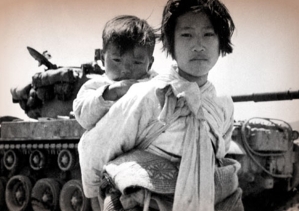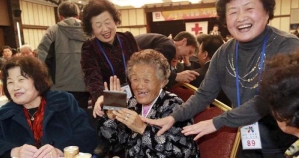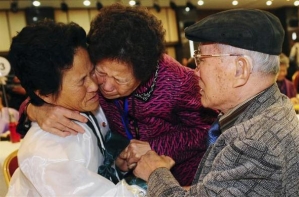
South Korea has proposed that the two Koreas hold reunions for families separated by the 1950-1953 Korean war on Feb. 17-22 at Mt. Geumgang, a North Korean mountain resort.
"Considering the separated families' desire to reunite, we propose to hold the reunion program from Feb. 17 to 22 at Mt. Geumgang," the Ministry of Unification said in a message delivered to Pyongyang through a communication channel at the truce village of Panmunjeom.
"We hope the North will respond positively to our proposal and give momentum in improving inter-Korean relations," ministry spokesman Kim Eui-do said at a briefing today.


North Korea had offered on Friday a reunion as part of its reconciliatory gestures, bringing back the event that has halted for four years. The two Koreas stopped family reunions in 2010 after North Korea's attack on a South Korean warship and an island, causing war-like tensions between the two countries.
Seoul also offered to hold Red Cross talks Wednesday at Panmunjeom to discuss details and is expected to choose up to 100 individuals for the reunion. Park Geun-Hye, president of South Korea, is still remaining skeptical about North Korea's reconciliatory gestures, especially the offer to hold reunions for separated families, stating that peaceful offers were always followed by an attack or threat on South Korea.
Park met with U.S. Senator Marco Rubio, a member of the Senate Foreign Relations Committee, at the Blue House in Seoul to discuss and better understand North Korean affairs along with other diplomatic issues in Northeast Asia.
"Given our previous experiences, such conciliatory propaganda [by North Korea] has always been followed by provocation," Park told Rubio, according to transcripts released by the Blue House. "Their words were always inconsistent with their actions.
According to the Korean news source, Joongang Daily, there has been a historical pattern where North Korea made conciliatory gestures to the South, only to follow up with an attack.
"On Jan. 1, 2010, North Korea released a New Year's editorial calling for better inter-Korean relations. However, two months later, a South Korean naval ship was sunk, which international investigators concluded was caused by a torpedo fired by North Korea.
In October 2010, North Korea also proposed holding reunions for separated families, but in November 2010, the regime bombed South Korea's frontline island of Yeonpyeong, killing two civilians and two Marines.
On Jan. 1, 2013, North Korea's new leader Kim Jong-un also called for improving the inter-Korean relationship, but on Feb. 12, 2013, the regime carried out its third-ever nuclear weapons test."- Joongang Daily
South Korea has so far rejected North's offer to ease tensions, stating that the North must take nuclear disarmament steps first. However, Seoul's Unification Ministry is trying to hold working-level talks on Jan. 29 to discuss details about the reunions with the North. The neighboring country has yet to respond to Seoul's proposals.
Since the Korean War, millions of Koreans have been separated from their family members who remained in their respective countries. Holding family reunions became an urgent inter-Korean issue because most of the those who were alive during the war period are in their 70s and 80s.
Roughly 22,000 North and South Koreans have met briefly with long-lost relatives since 2000. Since that year, the two Koreas have held 18 reunions. More than 70,000 South Koreans have registered to participate in the program in hopes of being one of the lucky 100 to get selected.







